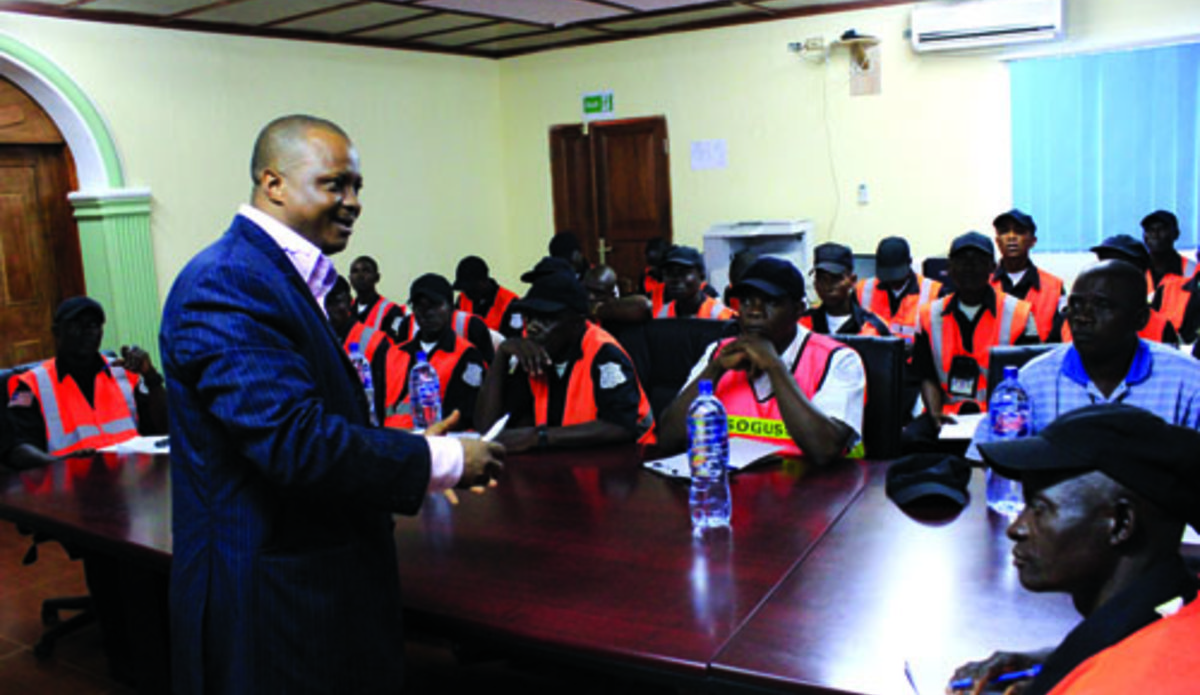UNMIL Trains Security Guards in Human Rights
In a timely intervention by UNMIL, security personnel at the Putu Iron Ore Mining Ltd. (PIOML) in Grand Gedeh County received training in human rights and the rule of law, just as the company’s feasibility studies progressed into Phase 2.
In mid-December some 150 security guards, including 10 women, attended a three-day training programme at the Company’s field office in Putu, provided by the Human Rights Office in Sector B3.
Welcoming the support, Tarley Dweh of PIOML said the training was part of efforts by management to promote conventional standards among staff, well before the company starts effective mining.
“In southeastern Liberia, iron ore mining is a new phenomenon and, as the people grapple with its dynamics, our security guards too need guidance to perform within acceptable standards and best practices in the industry,” Dweh told UNMIL Today. “Security personnel are there to protect life and property, but because they sometimes encroach on the privacy of others, it is important that they get to know the rights of people and respect them as such.”
Thomas Mtaisi, Head of the UN Field Office in Grand Gedeh, spoke along the same lines when he opened the programme, stressing that business concerns were under obligation to ensure respect for human rights as articulated in international instruments.
On the sidelines of the seminar, Dweh also reacted to the clamour by locals for employment, arguing that PIOML’s workforce of just over 300 was commensurate with current activities.
“We understand the frustration as everyone wants to get a job, but the company would not be into any extensive recruitment until Phase 3 of the project,” he intimated.
Pre-feasibility studies on the iron ore deposits in Putu started in mid-2010 and continued through October 2012. Definitive studies have only just begun, and will last another two years, while effective exploitation of the concession is not expected to start before 2017.
 UN
UN United Nations Peacekeeping
United Nations Peacekeeping





